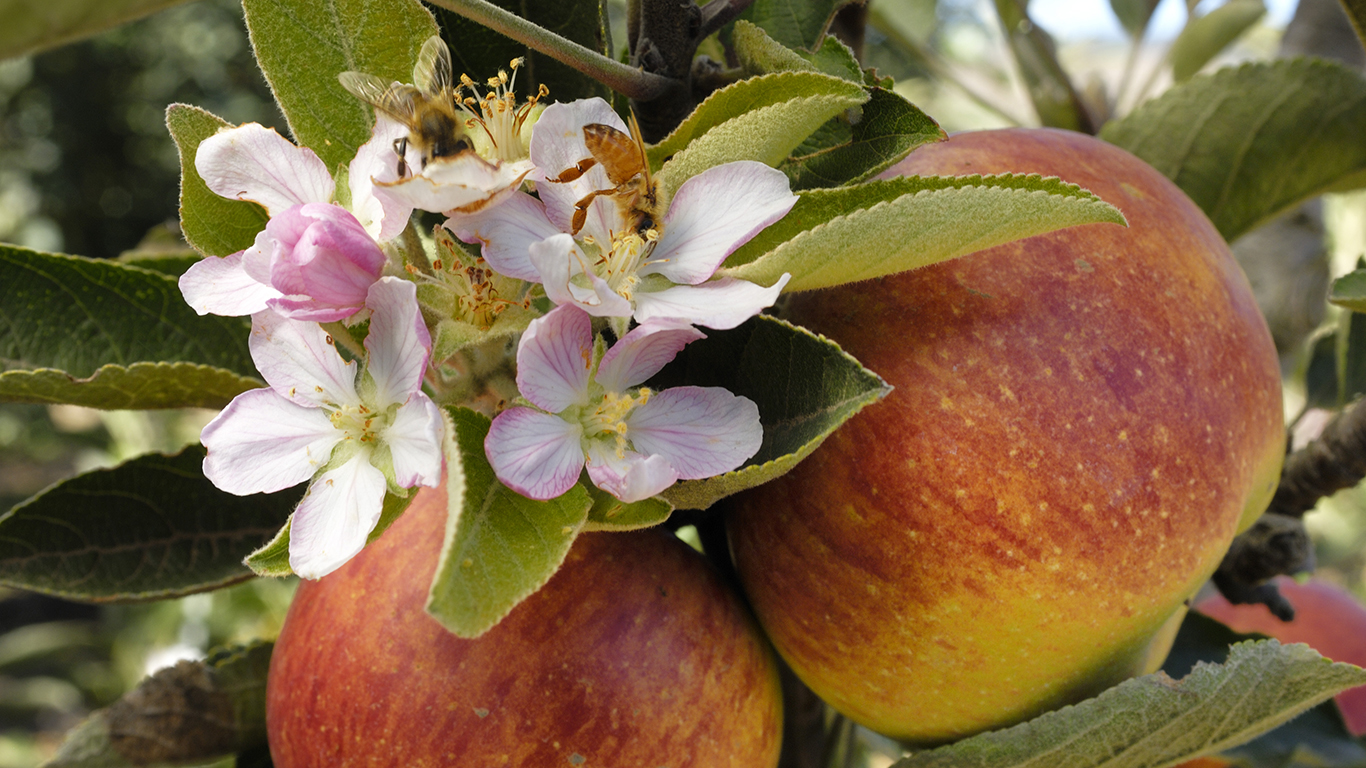Special Report
What Is Ecological Farming and How Can It Save Honey Bees?

Published:
Last Updated:

Industrial agriculture grew out of policies of the 1970s meant to increase farm productivity. At the time, the Soviet Union’s crops were failing and global demand for grain was rising. The Nixon administration urged farms to grow and adapt to answer the demand and export more agricultural products.
That era initiated a trend that has lasted over the decades since and hasn’t always been that lucrative for farmers. Small, diverse farms gave way to immense, high-production monocultures characterized by a few dominant crops and massive use of chemical pesticides and fertilizers. The transformation of farming has taken its toll on biodiversity, animal habitat, soil structure, and groundwater quality. It has also taken its toll on bees.
Because wild bees lost essential habitat in the process and could not be counted on to pollinate immense crop acreage, farmers came to rely on honey bee hives, which they carefully manage to assure adequate pollination of their fields. Despite this, we’ve witnessed severe bee loss, which has made headlines in 2007. Just last year, nearly 38% of managed hives were lost. This has drawn scrutiny to industrial agriculture. Here are the crops that would be most affected if honey bees disappeared.
Studies are showing that several of the many factors implicated in bee population decline are endemic to large scale, high-intensity farming. These include loss of plant and bee diversity, reduction in bee habitat and forage, and the introduction of large amounts of toxins into the environment. Here are some of the other major threats to U.S. bee populations.
Organic farmers reject synthetic chemicals in favor of natural means of pest control and fertilization, but they also promote biodiversity with crop rotation and landscaping that incorporates hedgerows and flowering plants. There are also more natural areas on organic farms to provide habitat and diverse forage for bees. And the approach works. Many studies have demonstrated that organic farms support more pollinators than other farms.
There are many ways in which farming practices can be improved to mitigate negative environmental impacts without a complete transformation to ecological farming. Farmers can protect bee pollinators by employing integrated pest management techniques to minimize the use of synthetic chemicals; by planting a variety of flowering plants for bee nutrition; and by setting aside natural space for bee habitat. See what everyday people can do to help honey bees and pollinators.
Retirement can be daunting, but it doesn’t need to be.
Imagine having an expert in your corner to help you with your financial goals. Someone to help you determine if you’re ahead, behind, or right on track. With SmartAsset, that’s not just a dream—it’s reality. This free tool connects you with pre-screened financial advisors who work in your best interests. It’s quick, it’s easy, so take the leap today and start planning smarter!
Don’t waste another minute; get started right here and help your retirement dreams become a retirement reality.
Thank you for reading! Have some feedback for us?
Contact the 24/7 Wall St. editorial team.